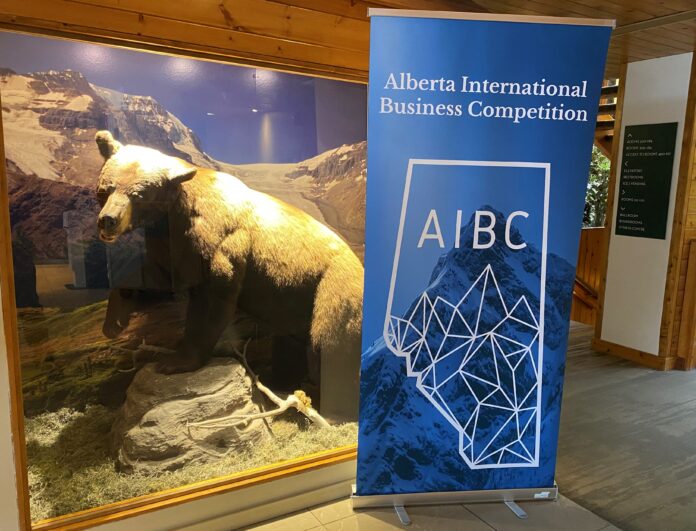By Andrew Heck
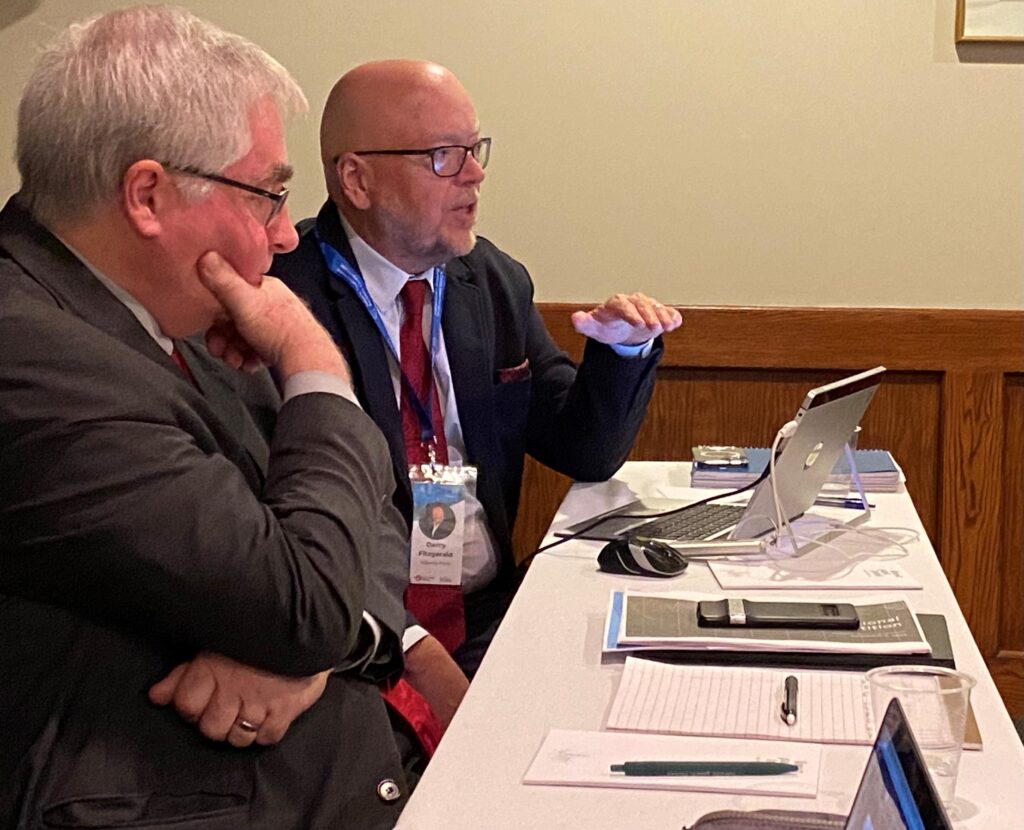
Whether a producer, processor or retailer, Canadian pork value chain stakeholders constantly have their minds, and businesses, geared toward profitability. This intense focus on financial viability is the increasingly elusive objective that must be met by all to ensure the industry’s domestic and global customers are able to stay fed and satisfied, literally and figuratively. At times, the struggle can lead to near-sightedness and a return to ‘old ways’ that prevents positive change from being realized.
However, as value chain partners find themselves at an impasse when it comes to addressing barriers to profitability, cynicism can quickly set in. This challenge makes it important as ever to consider new approaches to bridging gaps, if stakeholders truly want to find success in the coming years.
Recently, Alberta Pork took the initiative to seek support in the form of business student proposals solicited as part of the Alberta International Business Competition (AIBC), an event hosted by the University of Alberta Faculty of Business on Nov. 16 & 17, featuring 12 academic teams from around the world.
“The goal of AIBC is developing relationships with companies and organizations who share our vision, profiling Alberta as a diversified business community, while also showcasing the amazing beauty Alberta has to offer,” said Maya Bezubiak, VP Competition, AIBC. Bezubiak, a second-year University of Alberta student, joined the organizers’ side after attending as a Team Ambassador, in 2022. “Jasper is the perfect setting to bring international minds together to recommend innovative solutions for Alberta. AIBC would not be possible without the support we receive from all our partners.”
Teams hailing from Alberta, Ontario, Quebec, North Carolina, Florida, Mexico, the Netherlands, Thailand and Hong Kong all made their way to Jasper – the world-renowned mountain town and tourist destination – to hear two business cases, then respond. Alberta Pork’s case, centred around pork industry profitability, was presented by Darcy Fitzgerald, Executive Director, Alberta Pork.
“Alberta Pork was thrilled to be included as part of this prestigious competition,” said Fitzgerald. “These young, bright minds came up with some impressive and unexpected ideas, which is no easy feat.”
Teams then had just 30 hours to research, brainstorm, fine-tune and deliver a presentation before a team of expert judges, including Fitzgerald; Andrew Dickson, former General Manager, Manitoba Pork; Stan Vanessen, Chair, Alberta Pork; Ian Moon, Manager, Hog Procurement, Olymel; Brian Markert, Chair, Western Hog Exchange; Trevor MacLean, Partner, MNP; along with other representatives from the Alberta business community.
Getting down to business
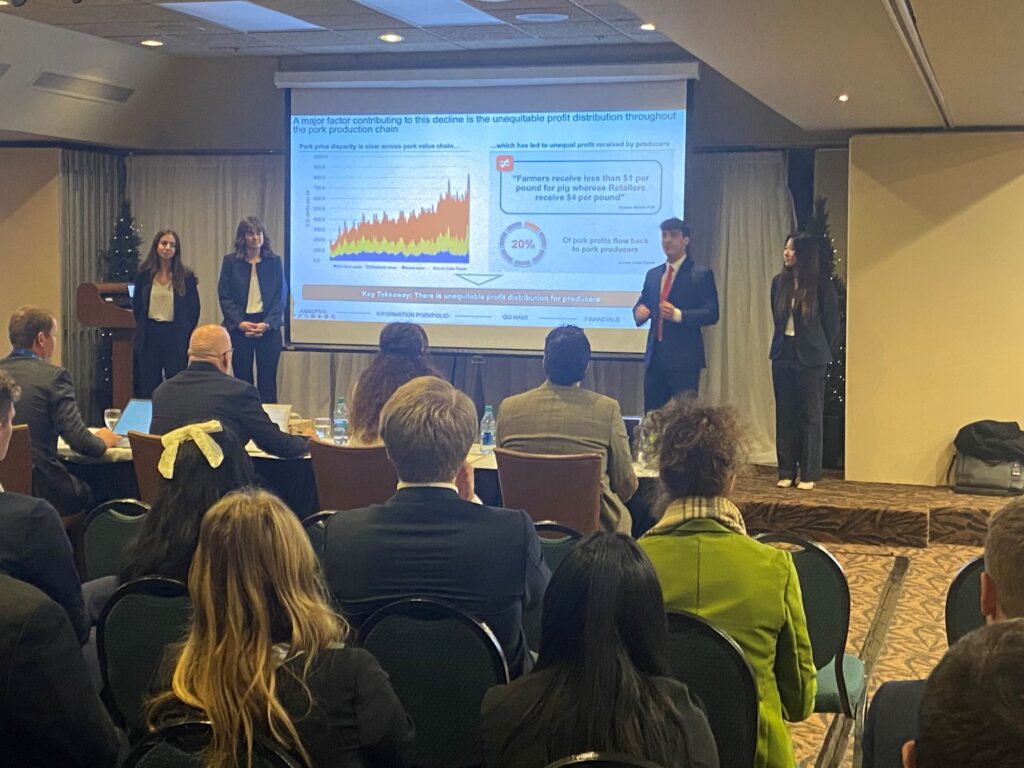
With the business case established, each team quickly got to work generating ideas, exploring everything from profit-sharing strategies and single-desk marketing, to advertising campaigns and public events. Some of the communication-focused ideas mentioned using the Canadian Hog Journal as a channel for effectively spreading messages.
Recognizing the different approaches, a common thread could be found among all: the need to find innovative ways to increase producer margins; the need to develop better business relationships among value chain partners; and the need to improve pork promotion and awareness.
The winning team, from the University of Florida, cited information provided by Alberta Pork related to pig carcass value as one of its primary motivators to suggest that revenue across the value chain is unevenly distributed and a threat to industry sustainability.
“There is currently a disconnect between key players in the pork production chain, starting with customers,” said team member Joshua Levin, referring to domestic sales of pork. “Customers are unaware of the premium product differentiation, so they are unwilling to pay a premium price. Ultimately, if retailers and processors are unable to receive a premium price, they are unwilling to pass that back to producers.”
On top of improved efforts to communicate pork’s consumer value, the team suggested that producers could also use technology to empower their own decision-making, by sharing information related to production costs and pig pricing.
“Integrated negotiation information could help producers better understand their value-add,” said team member Savannah James, referring to contracts with processors. “Processor ROIs [return on investments] would allow producers and processors to work toward a more palpable solution for both stakeholders.”
Following its characterization of the profitability problem, the team then unveiled its revenue strategy. The strategy emphasized greater industry transparency to aid consumer confidence and encourage pork purchases. The team suggested Alberta Pork could investigate blockchain technology to aggregate information for end-users, accessible at the retail level using a QR code.
“This could include better tracking, enhance traceability and shared data,” said team member Madison Malone. “Consumers can see that the product is sustainably sourced, building trust and helping them justify that premium price.”
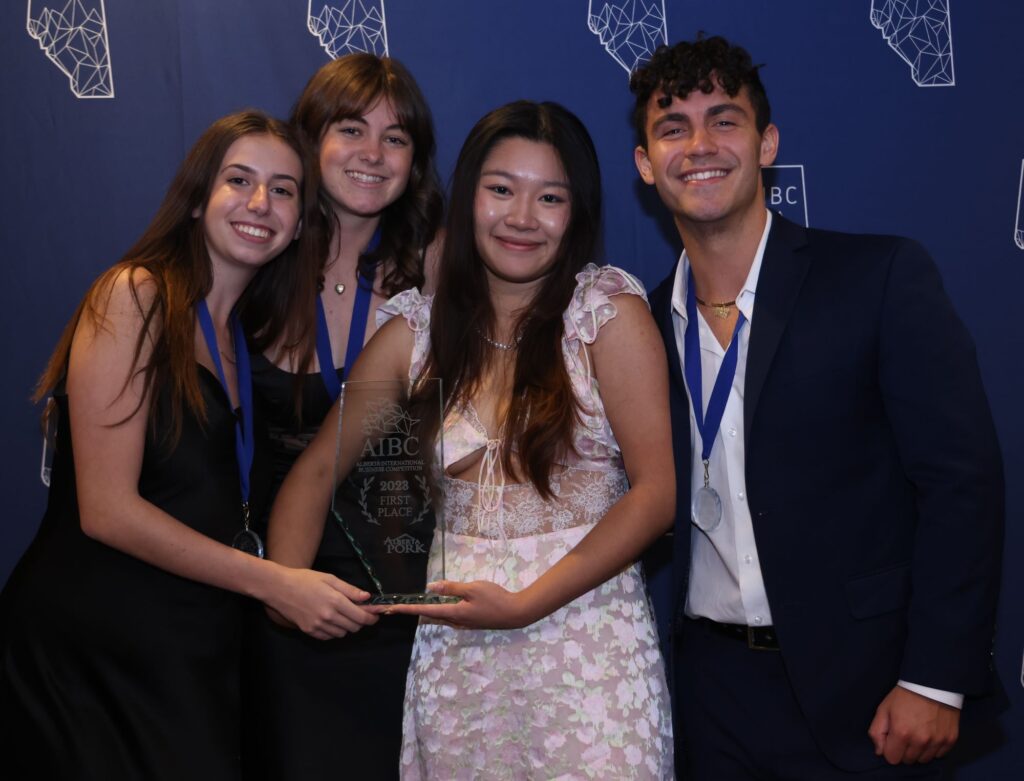
While blockchain technology may seem foreign to the Canadian pork industry, the team referenced the success of BeefChain: a U.S.-based blockchain system adopted in 2019 and approved by the U.S. Department of Agriculture (USDA). BeefChain assists quality assurance certification by tracking cattle at the ranch level, to the feedlot, to the processing plant, to the grocery store.
Increased revenue at the retail level, understandably, may not automatically trickle down to processors and producers; however, the major advantage of blockchain is its user-entered, encrypted data. This places the power of the tool with producers and processors supplying this information. For the system to work in retailers’ favour, it must also benefit their suppliers, creating a mutual desire for cooperation and collaboration.
“Producers have a unique position, as they’re the only ones with the pigs’ data,” said team member Beata Chen. “They’re the only ones who can provide this blockchain and transparency, giving them leverage. That way, if the retailer doesn’t want to share profits, producers wouldn’t need to participate, which would affect the retailers’ sales, so there’s no way to take advantage of producers.”
Though the University of Florida’s team’s performance was remarkable, it wasn’t without precedent: the team was only two weeks removed from its previous competition victory, at an event held in Guadalajara, Mexico. In February, the University of Florida will host its own event, the Heavener International Case Competition (HICC).
“To win one international competition is hard enough, and that’s always exciting and thrilling and gets me all fired up – but winning back-to-back, that’s tough,” said Sean Limon, the team’s coach. “Their performance at the end of the year really elevated our program. They demonstrated the high standard the HICC team has and brought our program back to the top level that it is.”
Coming in second place at AIBC was the team from Panamerican University (Mexico), and coming in third place was the team from Concordia University (Quebec).
Big-picture thinking encourages optimism
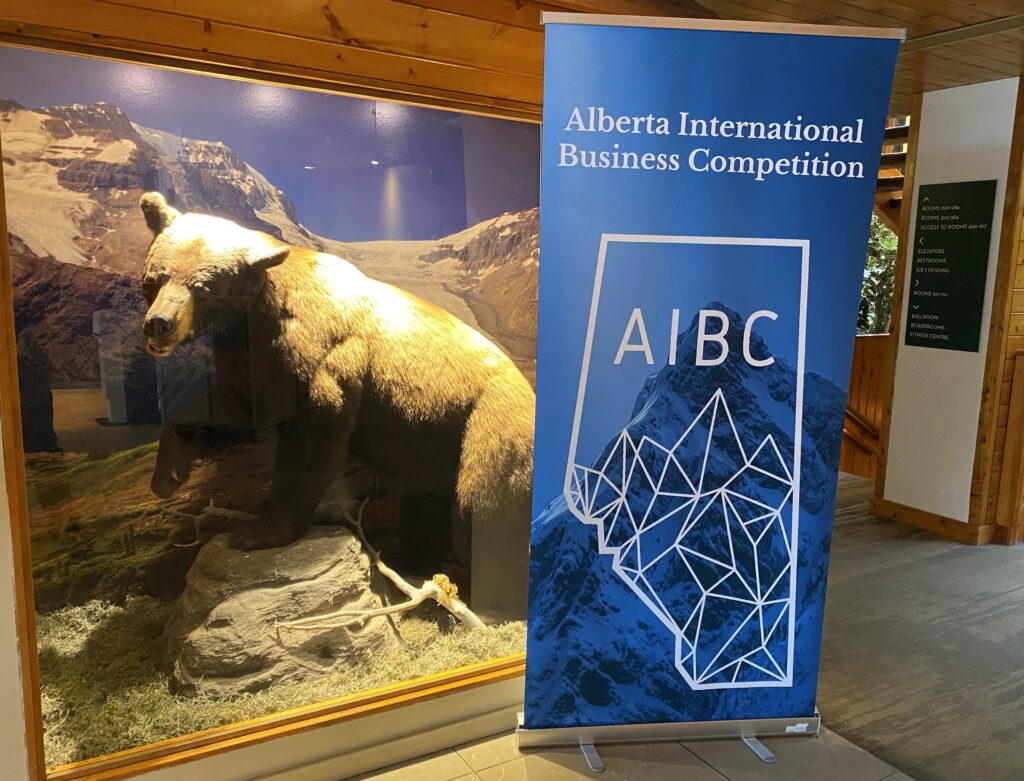
Be it blockchain or billboards, no shortage of creativity, ingenuity and resiliency were on display at AIBC. Teams took time out of their own busy school schedules – and money out of their own pockets – to participate in this incredible demonstration of talent and enthusiasm for business practice.
Looking to the future, the Canadian pork industry’s efforts toward greater profitability, equitability and sustainability have a real wealth of opportunity to look beyond traditional thinking and embrace change. During a time when industries and businesses are fighting to stay relevant among audiences, it makes sense for decision-makers to step out of their comfort zones and open their minds to fresh perspectives.



